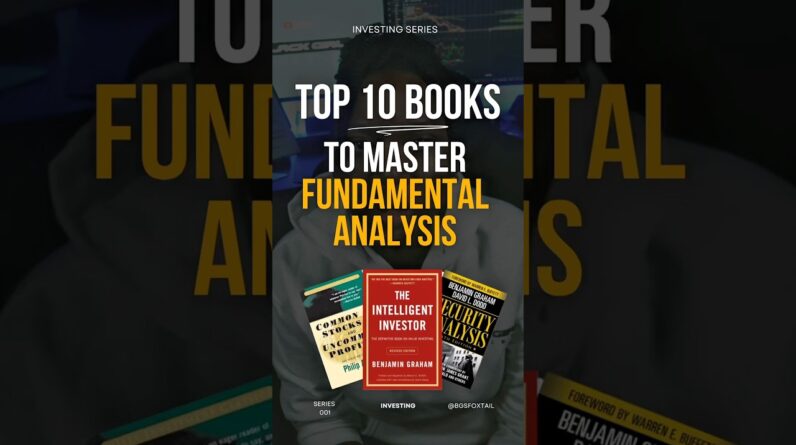Every successful trader and investor knows how important is portfolio management.
Today we’ll discuss the best portfolio management strategies to guarantee your long-term success,
Contents
-
-
-
-
-
- Different Portfolios For Different Investment Goals
- Short Term (High Risk)
- Medium Term (Average Risk)
- Long Term (Low Risk)
- Information About Portfolio Management
- Final Thoughts
-
-
-
-
Managing your portfolio might be one of the most important skills to being a successful investor.
Every investor should have an overall goal for their portfolio.
In addition, understanding the different types of investments you can utilize within your portfolio is essential to generating long-term success.
This guide will focus on some of the best portfolio management strategies that can come in handy for novice investors looking for new ways to build their portfolios.
Most successful investors will agree that a diverse portfolio is one of the best investment strategies.
It’s never a good idea to place all of your funds into one particular investment because you could lose everything.
Instead, crafting a portfolio of stocks, bonds, and other similar types of securities is one of the best ways to sustain long-term growth within your portfolio.
Some investors like to take a slightly more aggressive approach when they invest.
Other investors consistently try to avoid unnecessary risks, and they manage their portfolios accordingly.
We’ll start by discussing the different types of investments that might be used for various investment scenarios.
Managing your risk factors and allocating your funds appropriately is an essential skill that every investor should prioritize early on in their investing career.
Different Portfolios For Different Investment Goals
If you are prepared to invest your money, you probably have a reasonable idea of how long you intend to invest.
However, short-term investments usually require portfolios that are vulnerable to higher risk and more volatility.
On the other side of the spectrum, long-term investments typically take advantage of compounding growth from dividends in the stock market.
As a result, there is much less volatility in this kind of investment and much less risk overall.
Short Term (High Risk)
If you are trying to configure your portfolio for a short-term investment, then there’s probably a good chance that you’ll want to take some risks to generate the maximum return in as little time as possible.
Volatile stocks and short-term corporate bonds are excellent short-term investments that are capable of generating a return.
However, they are also reasonably risky because there is no guarantee that you will grow your money in this situation.
Investing for the short term doesn’t always require a risky portfolio.
Sometimes investors allocate their money to generate safer returns with little risk over a short period.
Medium Term (Average Risk)
If your investment goals are expected to be for the medium-term, you probably aren’t intending to generate rapid growth of your money.
This means that you can utilize natural price fluctuations in growth stocks and dividend payments to help grow your money.
Most investors configure their portfolios in such a way that allows them to be as diverse as possible.
You might notice investors allocating their money in stocks, bonds, and precious metals.
A diverse portfolio is highly safe because it doesn’t rely on a single sector or industry.
If one particular portion of the market starts to struggle, you aren’t necessarily losing value in your portfolio due to your diversity.
Gains in alternative investments can help offset losses in working investments in the short term, which ultimately prevents your portfolio from decreasing.

Long Term (Low Risk)
One thing that has proven to be true in the American stock market for a highly long period is the fact that the natural trend of the stock market is upwards.
Even though the sharpest declines in the stock market, there is always a recovery in the future.
This is one reason that long-term investments are so incredibly safe, especially in markets that rely on natural long-term growth.
A long-term investor should have the goal to build a portfolio that compounds their money.
A diverse portfolio, in this case, should include stocks, precious metals, bonds, and other similar securities to generate long-term stable growth.
Dividend payments are great long-term methods to build your money and reinvest it to keep building up your portfolio.
After a significant period, you’d be surprised at how much your money has grown.
Investors don’t always build their portfolios with timeframes in mind.
Sometimes making a portfolio doesn’t target a specific amount of time into the future to generate a certain percentage of gains.
While it is always good to have an investment objective, portfolio management requires a lot more than simply understanding the risks and timeframes for monetary growth.
Download the Option Profit Calculator
Information About Portfolio Management
If you want to hire a financial advisor to manage your portfolio, there are a couple of different types of portfolio management services that you can request.
One popular option is to hire an active portfolio manager that handles your portfolio daily and makes financial transactions based on their research and experience.
You can also hire a financial advisor for passive portfolio management.
Instead of buying and selling stocks daily, your portfolio manager will invest in index funds.
This eliminates a lot of the effort and takes advantage of someone else’s investment experience.
You can also work directly with your advisor and instruct them on how to manage your portfolio.
Again, this is a widespread alternative that allows clients to work with their financial advisors to build the right portfolio for them.
It can also provide a lot of peace of mind to have a clear understanding of where your money is being invested.
Final Thoughts
It’s almost impossible to be a successful investor without good portfolio management.
Understanding the different investment risks is an important skill to sustain growth and allow your money to grow over time.
Having a diverse portfolio is usually better than having all of your eggs in a single basket.
Investing all of your money in one or two different stocks can result in a financial catastrophe if things don’t go your way.
New investors should prioritize portfolio management because it is an essential part of being a successful long-term investor.
Trade safe!
Disclaimer: The information above is for educational purposes only and should not be treated as investment advice. The strategy presented would not be suitable for investors who are not familiar with exchange traded options. Any readers interested in this strategy should do their own research and seek advice from a licensed financial adviser.

The post Blog first appeared on Options Trading IQ.
Original source: https://optionstradingiq.com/how-important-is-portfolio-management/


